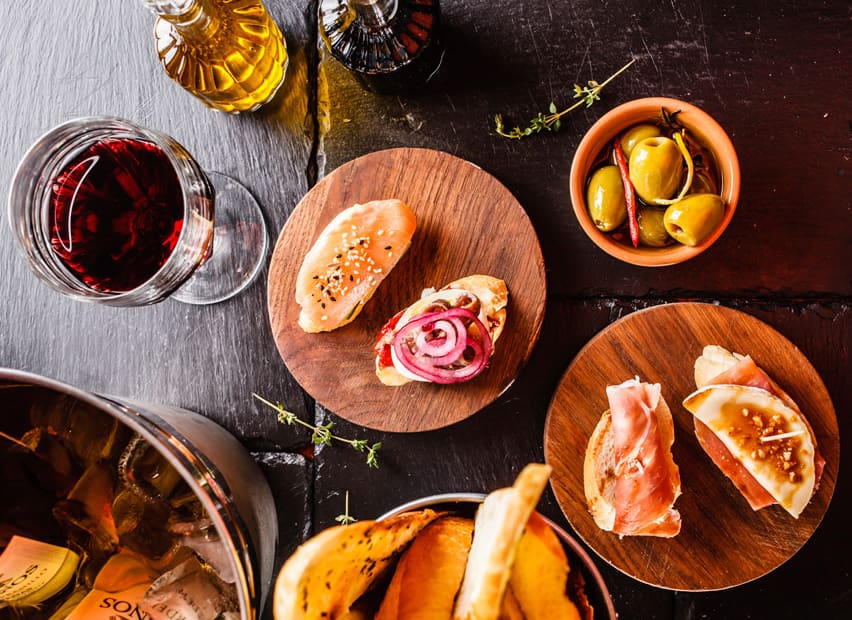For gourmands, the news came as a one-two punch: Last fall, La Belle Vie, Tim McKee’s bastion of fine dining, announced its impending closing. Not long after, Vincent Francoual said his eponymous French eatery would shutter the last day of 2015.
In discussions with Artful Living, both restauranteurs revealed several reasons for their decisions but admitted it came down to the times: They are a-changin’.
“What has changed is people’s interest in what was formerly fine dining,” says McKee. “People are looking for a more casual dining experience across all spectrums.”
And casual is the word du jour. Not only do McKee and Francoual use the term — “It seems,” Francoual says, “that the trend is now ‘casual fine dining’” — so does Meritage co-owner and chef Russell Klein, whose Central European–focused Brasserie Zentral closed down in early 2016 after 23 months in business. Chef Lenny Russo, whose highly regarded Heartland remains open, echoes the sentiment: “People are just more casual.”
There’s more to the story, of course, including restaurateurs’ displeasure with new requirements around employees’ pay and schedules. And some establishments faced road construction that impeded traffic. But it should be noted that more than 200 new eateries opened in the Twin Cities last year, including the much-anticipated Spoon and Stable.
For most chefs in town, however, La Belle Vie was the beacon of fine dining, with its hushed dining room, its impressive wine list, and its impeccable cuisine, presentation and service.
“I think the pinnacle was La Belle Vie,” says Francoual. “La Belle Vie was the last one of them,” agrees Russo.
Running a fine-dining restaurant, or at least the traditional version of one, is expensive. A fork cost La Belle Vie $5, a wine glass $10. Margins at most high-end establishments are thin.
Then in 2014 came new rules regarding pay: Even tipped employees had to receive a minimum wage. That was followed by an unpopular move by the city of Minneapolis requiring restauranteurs to set schedules ahead of time and compensate workers if that schedule changed because of, say, a playoff game or a major snowstorm that might signal a sharp uptick or downturn in business.
Klein, whose St. Paul bistro, Meritage, remains popular, found the city of Minneapolis less than business-friendly. Everyone, he says, from the mayor to the guy sitting behind a desk at a regulatory agency acts as if they couldn’t care less about your business.
“When we announced the closing of Brasserie Zentral,” Klein says, “I got a very nice text from [St. Paul Mayor] Chris Coleman expressing his condolences. I expected a flurry of emails from my vendors, but the only one I got was from a license inspector — not with any expression of sorrow that all these people were losing their jobs. He said if we were going to shrink our premises, we’d have to amend our licenses. All Minneapolis cares about is, ‘How can we get our little cut from you?’ It’s an awful city to do business in.”
“Millennials are now driving the industry,” notes Russo, who’s been evolving his menus with that in mind. “They mostly graze. They like to see creative, sophisticated food, but they like multiple, small items — lots of beers on tap, craft cocktails, and bartenders with tattoos and a top knot. Today, bartenders look like the guys who used to work in barbershops when I was a kid. Our clientele is moving on, and we need to make sure we stay relevant.”
McKee, who now oversees culinary programs at Parasole’s eateries, thinks the Twin Cities has grown exponentially as a foodie destination but notes that “it’s not about precision. It’s all about creativity, and creativity trumps precision.”
“Dining evolves and changes,” says Klein. “And it’s obvious you can now get food that’s very comparable to that of fine-dining restaurants in much more casual settings. I’ve always said the success of Meritage is that we can have a guy in a Wild jersey going to a game and a couple at the next table in black tie going to the opera.”
Francoual, who is taking time off to spend with his new baby, says some people think of a steakhouse as fine dining. But he considers fine dining something “you can’t make at home” — and he’s not sure Twin Cities diners are ready for that.
“In Europe, people are more likely to spend money on a good meal than on a house,” he adds. “When Alain Ducasse opened in New York City, people were saying, ‘Oh, it’s too expensive’ — but those same people will pay $300 to see a basketball game. In the Midwest, it’s even more that way. It’s not a matter of the number of people; it’s cultural.”
Even the sturdy Michelin guide has eased its criteria, no longer insisting on hand-ironed tablecloths and expensive crystal. Case in point: San Francisco’s Kin Khao recently received one star. The Thai eatery is tucked in a nondescript hallway in a fairly ordinary hotel, Parc 55 off Union Square. No tablecloths, a limited wine list and a view of a FedEx office. But the food is really good.
The times, they are a-changin’.




